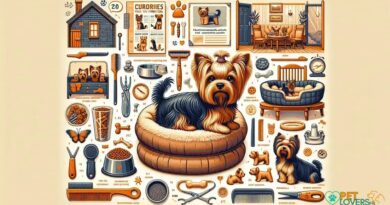What is Unpredictable dog behaviors
Understanding Unpredictable Dog Behaviors
Unpredictable dog behaviors can often leave pet owners puzzled and concerned. These behaviors may include sudden aggression, unexpected fear responses, or erratic playfulness. Understanding the root causes of these behaviors is essential for dog owners who wish to create a safe and harmonious environment for their pets. Factors such as genetics, past experiences, and environmental influences can contribute to these unpredictable actions.
Common Triggers of Unpredictable Behaviors
Many factors can trigger unpredictable behaviors in dogs. Changes in their environment, such as moving to a new home or the introduction of new pets or people, can lead to anxiety and stress. Additionally, loud noises, unfamiliar scents, or sudden movements can provoke a dog’s instinctual fight-or-flight response. Recognizing these triggers is crucial for preventing unwanted behaviors and ensuring your dog’s well-being.
The Role of Socialization in Behavior
Socialization plays a vital role in shaping a dog’s behavior. Dogs that are not adequately socialized during their critical developmental stages may exhibit unpredictable behaviors later in life. Exposure to various people, animals, and environments helps dogs learn how to respond appropriately to different situations. A well-socialized dog is generally more confident and less likely to react unpredictably to new experiences.
Understanding Canine Body Language
Canine body language is an essential tool for interpreting a dog’s feelings and intentions. Dogs communicate through a combination of vocalizations, facial expressions, and body posture. Understanding these signals can help owners identify when their dog is feeling threatened, anxious, or playful. By being attuned to their dog’s body language, owners can take proactive steps to mitigate unpredictable behaviors before they escalate.
Impact of Training on Behavior
Training is a powerful method for addressing unpredictable dog behaviors. Positive reinforcement techniques can help dogs learn desirable behaviors while reducing anxiety and fear. Consistent training routines establish clear expectations for dogs, which can lead to more predictable behavior. Engaging in regular training sessions not only strengthens the bond between the dog and owner but also enhances the dog’s confidence in various situations.
Health Issues and Unpredictable Behaviors
Sometimes, unpredictable behaviors can be linked to underlying health issues. Pain, illness, or neurological disorders can significantly affect a dog’s behavior, leading to sudden changes in temperament. Regular veterinary check-ups are essential for identifying and addressing any health concerns that may contribute to unpredictable behaviors. Owners should be vigilant and consult with a veterinarian if they notice any sudden changes in their dog’s behavior.
The Importance of Routine
Establishing a consistent routine can help mitigate unpredictable behaviors in dogs. Dogs thrive on predictability, and a structured daily schedule can provide them with a sense of security. Regular feeding times, exercise, and play sessions can help reduce anxiety and promote a calm demeanor. By maintaining a routine, owners can create an environment that fosters stability and reduces the likelihood of unpredictable actions.
Managing Fear-Based Behaviors
Fear-based behaviors are among the most common forms of unpredictability in dogs. These behaviors can manifest as aggression, withdrawal, or destructive actions. Identifying the source of fear is crucial for addressing these behaviors effectively. Gradual desensitization and counter-conditioning techniques can help dogs overcome their fears and respond more predictably to previously anxiety-inducing situations.
Seeking Professional Help
In some cases, unpredictable dog behaviors may require the assistance of a professional dog trainer or behaviorist. These experts can provide tailored strategies to address specific behavioral issues and help owners understand their dog’s needs better. Professional guidance can be invaluable in creating a comprehensive behavior modification plan that promotes a harmonious relationship between the dog and its owner.
Conclusion: Embracing the Unpredictable
While unpredictable dog behaviors can be challenging, they also offer an opportunity for growth and understanding. By educating themselves about their dog’s behavior, owners can foster a deeper bond and create a more fulfilling life for their pets. Embracing the unpredictability of dog behavior can lead to a more enriching experience for both the dog and its owner.




